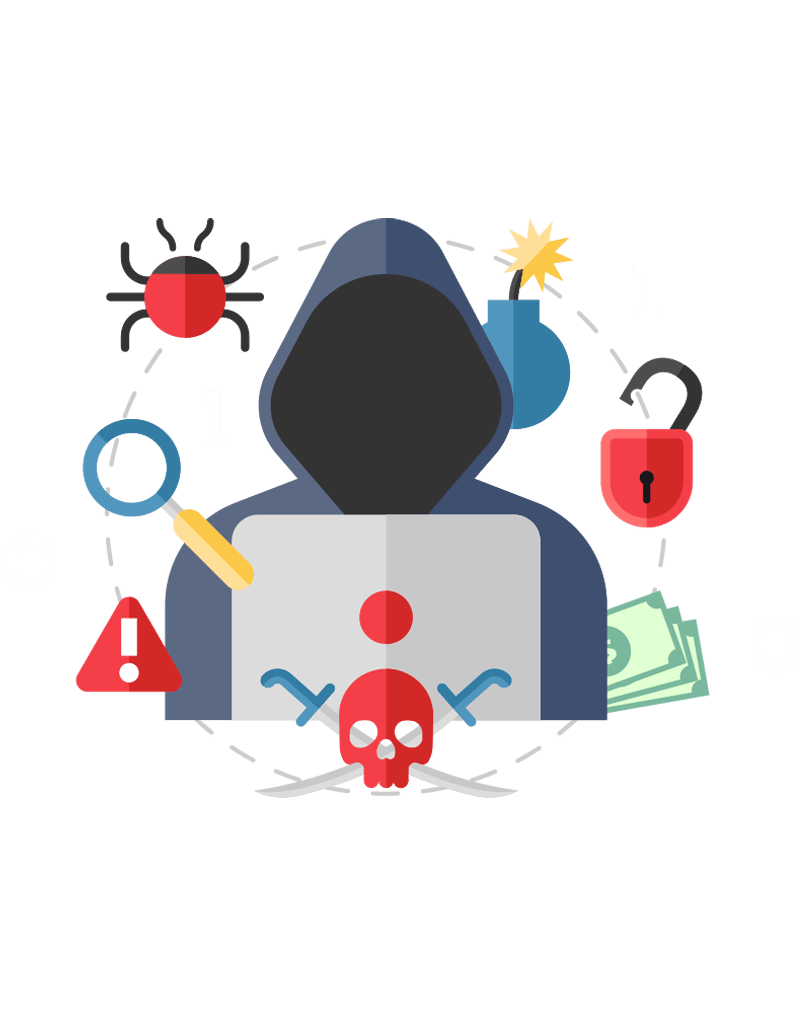Research Statement & Ethical Guidelines
 DISCLAIMER
DISCLAIMER
![]() IMPORTANT: This tool is for educational purposes and authorized testing only.
IMPORTANT: This tool is for educational purposes and authorized testing only.
Use only on systems you own or have explicit permission to test.
 Academic Research Purpose
Academic Research Purpose
This repository contains educational materials for cybersecurity research and training purposes. The code demonstrates phishing attack vectors for defensive security education and awareness training.
 Research Context
Research Context
Educational Objectives
- Security Awareness Training: Demonstrate common phishing techniques to educate users
- Defensive Security Research: Study attack vectors to improve detection and prevention
- Academic Study: Research social engineering and credential harvesting methods
- Penetration Testing Education: Train security professionals in authorized testing scenarios
Ethical Framework
This research follows established ethical guidelines for cybersecurity education:
- Informed Consent: All demonstrations must be conducted with explicit participant consent
- Controlled Environment: Use only in isolated lab networks or authorized testing environments
- Educational Purpose: Materials are designed for learning, not malicious use
- Responsible Disclosure: Findings contribute to improved security practices
 Usage Restrictions
Usage Restrictions
✅ Authorized Use Cases
- Academic Research: University cybersecurity courses and research projects
- Corporate Training: Authorized security awareness training programs
- Penetration Testing: Licensed security assessments with proper authorization
- Defensive Research: Improving detection and prevention mechanisms
❌ Prohibited Use Cases
- Unauthorized Testing: Testing on systems without explicit permission
- Malicious Activities: Using for actual phishing campaigns or credential theft
- Public Deployment: Deploying on public networks or production systems
- Commercial Exploitation: Using for unauthorized commercial purposes
 Technical Safeguards
Technical Safeguards
Built-in Protections
- Demo Mode: All credential capture is clearly marked as "[DEMO]"
- Local Environment: Designed for isolated lab environments only
- Educational Comments: Extensive documentation of educational purpose
- Safe Redirects: All redirects point to legitimate services
Deployment Restrictions
- No Production Use: Explicitly designed to prevent production deployment
- Lab Environment Only: Requires isolated network configuration
- Authorization Required: Must have proper authorization before use
- Monitoring Required: All activities should be monitored and logged
 Academic References
Academic References
Related Research
- Social Engineering Attack Vectors (IEEE Security & Privacy)
- Phishing Detection and Prevention (ACM Computing Surveys)
- Cybersecurity Education Methodologies (Journal of Cybersecurity Education)
Ethical Guidelines
- ACM Code of Ethics and Professional Conduct
- IEEE Code of Ethics
- NIST Cybersecurity Framework
- OWASP Testing Guidelines
 Institutional Oversight
Institutional Oversight
Research Ethics
This project is designed to comply with institutional research ethics requirements:
- IRB Compliance: Suitable for Institutional Review Board approval
- Academic Integrity: Follows university research integrity policies
- Responsible Research: Adheres to responsible research and innovation principles
Contact Information
For questions about research ethics or institutional oversight:
- Research Ethics Office: [Contact your institution's research ethics office]
- Cybersecurity Department: [Contact your institution's cybersecurity department]
- Legal Compliance: [Contact your institution's legal compliance office]
 Documentation Standards
Documentation Standards
Code Documentation
- All code includes educational purpose statements
- Extensive comments explaining security concepts
- Clear warnings about authorized use only
- Documentation of ethical considerations
Research Documentation
- Detailed methodology documentation
- Ethical approval documentation (where applicable)
- Results and findings documentation
- Recommendations for defensive measures
 Legal Compliance
Legal Compliance
Jurisdictional Considerations
Users must ensure compliance with local laws and regulations:
- Computer Fraud and Abuse Act (US): Ensure authorized access only
- GDPR (EU): Comply with data protection regulations
- Local Laws: Follow applicable local cybersecurity laws
- Institutional Policies: Adhere to institutional cybersecurity policies
Liability Disclaimer
This software is provided for educational purposes only. Users are responsible for:
- Ensuring proper authorization before use
- Complying with all applicable laws and regulations
- Using only in authorized testing environments
- Obtaining necessary institutional approvals
 Educational Value
Educational Value
Learning Objectives
Students and researchers using this material will learn:
- Attack Vectors: Understanding of common phishing techniques
- Detection Methods: How to identify phishing attempts
- Prevention Strategies: Implementing effective countermeasures
- Ethical Considerations: Responsible use of security testing tools
Assessment Criteria
Educational use should include:
- Written authorization for all testing activities
- Documentation of learning objectives
- Assessment of ethical implications
- Evaluation of defensive measures
This research statement is designed to ensure responsible use of cybersecurity education materials while contributing to improved security practices and awareness.